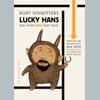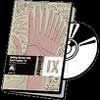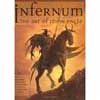 In the beginning, before the Big Bang, all the matter in the universe was concentrated in a single point. Qfwfq can tell you about it: He was there. "Naturally, we were all there—where else could we have been? Nobody knew then that there could be space. Or time, either: What use did we have for time, packed in there like sardines?" Qfwfq has been a mammoth, a dinosaur, and a single cell. He made the first sign in space, and analyzed it, too, getting the drop on Roland Barthes by a few billion years. He remembers the Earth when it had no atmosphere, the sun when it was a cold, dark nebula. He recalls how good it felt to be a mollusk, with all of evolution still before him; and what happened to old U(h) and the first bird; and how his sister G'd(w)n got lost when the sun formed and turned up in Canberra in 1912. With their avuncular narrator and their wild l
...
Read more »
|
 Inherent Vice, Thomas Pynchon’s seventh novel, follows so quickly on the heels of his sixth, the massive Against the Day (2006), that the teams of specialists who go over the fuselage of every Pynchon text as if it were a spy plane forced down by mechanical difficulties, identifying the probable origin and function of each part, writing up the results in Pynchon Notes or on the Internet, must be gnashing their teeth with weariness. The red telephone again? Aw, sheesh. If only there were some way to persuade them not to worry! Inherent Vice is by far the least puzzling Pynchon book to enter our airspace: a goof on the Los Angeles noir, starring a chronically stoned PI with a psychedelic wardrobe and a hankering for pizza. At fewer than four hundred pages, it’s also the shortest Pynchon novel to appear since Vineland (1990); you could almost recommend it to your boo
...
Read more »
|
 The large segment of the Haitian population that is unable to read or write inhabits an oral history culture, which produces, when looking into the past, a curious foreshortening. First comes the Haitian Revolution of 1791-1804, the only successful slave revolution in history and an event with whose fundamentals practically all Haitians are reasonably conversant. Then there's a compressed, indeterminate period of confused and repetitious instability, ending with President Woodrow Wilson's decision in 1915 to use the collection of outstanding American and French loans as a pretext for installing Marines in Haiti to prevent the election of an anti-American president. Following the close of the US occupation in 1934 is another indeterminate period of confusion, ending with the erection of the Duvalier dictatorship, a père et fils monolith that, in its iron duration f
...
Read more »
|
 When I was a little girl, my mom—consummate feminist and literary mother par excellence—gave me Tatterhood and Other Tales, an anthology of feminist folk tales whose cover sported a soot-cheeked minx gamely beating back a gang of trolls with a wooden spoon. Published by the Feminist Press in 1978, Tatterhood was one of a slew of anthologies that emerged in the wake of the women’s rights movement to combat the patriarchal Brothers Grimm and Disney party line. But employing fairy tales for activist means was nothing new. In Weimer Germany, fairy-tale collections like the pungently titled Proletarischer Kindergarten (1921) were published by communists to critique the country’s turbulent capitalist ethos (and to recruit little comrades, no doubt). Such prominent Weimer artists as George Grosz often illustrated the books, but some, like Kurt Schwitters, also took to wr
...
Read more »
|
 Painter, for the beginner or those new to a digital workflow, can be a daunting prospect. This is mainly due to its vast feature set – tons of brushes, a zillion palettes and some quite essential tools hidden away in menus. Painter IX, as you’ll know if you read our review last issue, is the standard as far as digital art tools go. And if you’re serious about digital painting, you need to learn this tool like the back of your hand. The double-CD set (not a DVD) contains 11 hours of tuition, so it’s good value in terms of minute per pound or dollar. And it’s neatly organised. There are 14 chapters, each divided into different disciplines within Painter, such as painting, sketching and working with layers.
The package goes from absolute basics (opening a file, saving) to some detailed explanations of preferences and how to customise Painter. The tuition is s
...
Read more »
|
 Infernum: The Art of Jason Engle. A collection of amazing fantasy work from one of the world's finest. Since co-founding Innovative Studios at just 19, Jason has risen to become one of the world’s most respected fantasy artists. This showcase does his work justice. The artist’s portrayals of mythical beasts, dragons and warriors shine through in all their painterly glory. It includes some insightful explanations. It could do with more behind-the-scenes and technique stuff, but it’s still a solid collection.
Web www.papertiger.co.uk |
 Digital Sci-Fi Art: A Step-by-Step Guide to Creating Stunning, Futuristic Images, by Michael Burns, a Trade PB from Collins Design Step-by-step guide to popular techniques gives instruction from top artists on how to create such phenomena as motion blur and atmosphere, and build objects such as futuristic weapons and vehicles. It’s a little disjointed in places but is brimming with ideas, has a well presented gallery, useful links and a logical, easy-to-follow manner.
Web www.ilex-press.com |
|
|
|
Statistics |
Total online: 1 Guests: 1 Users: 0 | |






